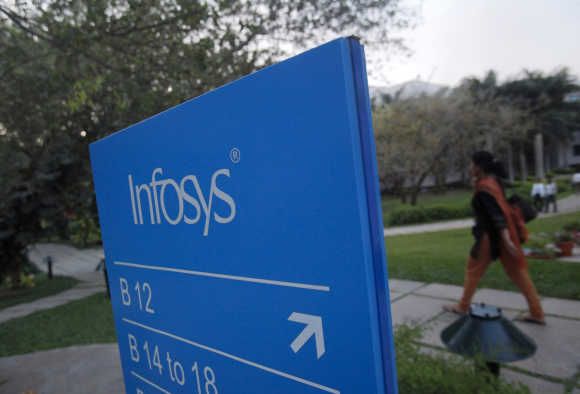Before participating, consider the company's long-term prospects, premium offered and acceptance ratio, says Sanjay Kumar Singh

Since the beginning of April 2016, 69 companies have proposed or undertaken buybacks of shares worth Rs 58,592 crore.
Currently Engineers India has announced one worth Rs 658.8 crore.
Information technology companies such as Tata Consultancy Services (TCS), Wipro and HCL Technologies have been at the forefront.
In the Union Budget 2016, the government changed the norm for taxation of dividend.
Since then, buybacks have become the preferred route through which companies try to reward their shareholders.
Investors need to learn how to decide whether to participate in a buyback or abstain.
The basics
Buyback is one way through which a company returns a part of the profit it has generated to shareholders.
By keeping the buyback price higher than the current market price, it puts some extra money in the pockets of shareholders.
Buybacks also benefit the shareholders who don't participate.
When a company buys back shares, its total number of outstanding shares reduces.
For the same level of total earnings, if the number of outstanding shares declines, the company generates higher earnings per share (EPS).
A higher EPS in turn translates into a higher price for the stock.
Sometimes there could be a double bonanza in the form of the PE (price-to-earnings)valuation also getting re-rated upward.
The most important reason for buybacks becoming the preferred mode is the change in taxation norms for dividends in Budget 2016.
If the aggregate amount of dividend received by a high net worth individual (HNI) in a financial year exceeds Rs 10 lakh, the amount in excess of Rs 10 lakh becomes taxable.
The rate of taxation of dividend is 10 per cent, plus the applicable surcharge and cess. This is over and above the dividend distribution tax (DDT) paid by companies (effectively 20.93 per cent: DDT at 15 per cent, surcharge at 12 per cent, and cess at 3 per cent).
"The dividend route has become tax-inefficient, especially for HNIs," says Arun Kejriwal, founder, Kris Research.
The rate of taxation in a buyback, on the other hand, is much lower.
"Where the gain is short-term in nature and securities transaction tax (STT) is levied on such a transaction, the gain would be taxable at 15 per cent (plus applicable surcharge and cess)," says Rajesh Thakkar, tax and regulatory partner, BDO India.
"Where the gain is long-term in nature, the buyback will be exempt from tax if STT is levied and the purchase of such shares is not disqualified under Section 10(38) of the Income Tax Act," Thakkar adds.
Promoters also undertake buybacks when they feel the company's stocks are trading at a price lower than their intrinsic value.
"By buying when stock prices are low, promoters are able to increase their shareholding at a lower cost," says Rakesh Tarway, head of research, Reliance Securities.
Tender offer versus open market purchase
Companies carry out buybacks either through a tender offer or through open market purchase.
In the former, the company offers to buy back shares, usually at a premium, from investors who choose to sell them.
In an open market purchase, the company buys shares from the market at the best price available.
"The tender offer route is more attractive for shareholders as they know the premium they will get over the market price. In the open market offer, on the other hand, the company only buys when the price dips."
Of the 69 buybacks done (or being undertaken currently) since April 2016, only eight followed the open market purchase route.
The rest were through the tender offer route.
Should you participate?
The decision to participate in a buyback should depend on a variety of factors.
It will, for instance, be driven by the nature of the investor, whether s/he is a fundamentals-based, long-term, buy-and-hold investor or a more active trader.
The former should try to understand the long-term prospects of the company.
"If the prospects are visible and sound, and the company is passing back excess cash to investors, that is a perfectly acceptable scenario. In that case, the investor should stay put," says Sunil Sharma, chief investment officer, Sanctum Wealth Management.
"But if the long-term prospects are not healthy, and the company lacks opportunities to grow its business and is then returning money to shareholders in the form of a buyback," Sharma adds, "we might prefer to take the buyback, assuming the premium is worthwhile."
Concurs R Sreesankar, co-head, equities, Prabhudas Lilladher: "The premium offered in the buyback shouldn't be the only consideration. Suppose you opt for the buyback now and the company does well in the future. Its stock price will rise considerably. In that case, you would be selling cheaply today by participating in the buyback."
For active traders, the considerations would be different.
"If the premium offered in a buyback is large, take advantage of the opportunity," says Tarway.
"If a company offers a 10 to 15 per cent premium to the current market price, the investor should tender his shares. If he is bullish about the long-term prospects of the company, he can always buy back those shares from the market at a later date," Tarway explains.
The risk herein, of course, is that the prices may not return to current levels.
Acceptance ratio is another important criterion.
The company usually stipulates that it will accept only a certain percentage of the shares you own in a buyback.
"Take into consideration both the premium offered and the acceptance ratio. That will determine the total amount of money you can get from the transaction. If the premium announced is small and only a few of your shares are going to be accepted, why go through all the paperwork involved in a buyback?" says Kejriwal.
Finally, according to Securities and Exchange Board of India regulations, companies undertaking buybacks through the tender route have to reserve 15 per cent of the shares they propose to buy back for small shareholders, defined as those whose market value of securities in a company is less than Rs 2 lakh.
This has been done to improve the chances of acceptance of shares tendered by small shareholders.
Kindly note: The lead image is published only for representational purposes.













 © 2025
© 2025